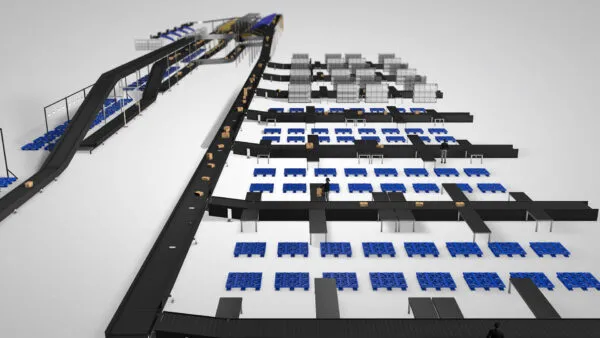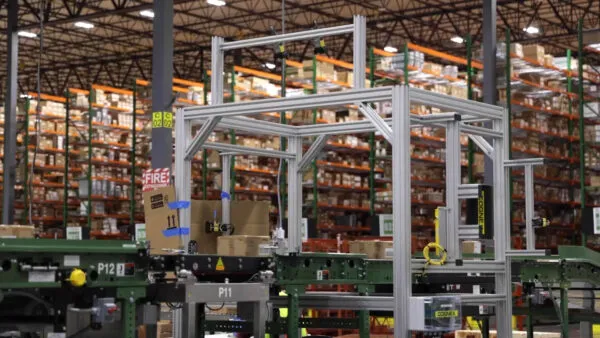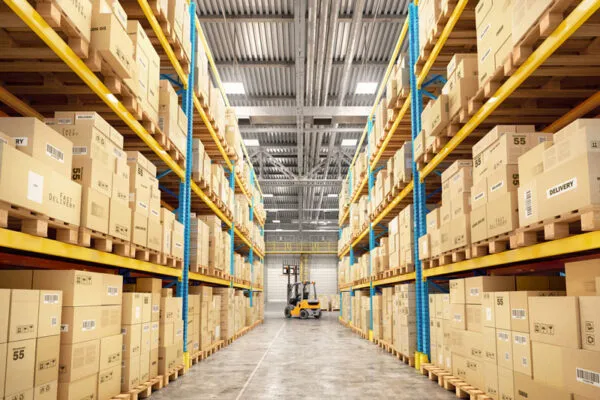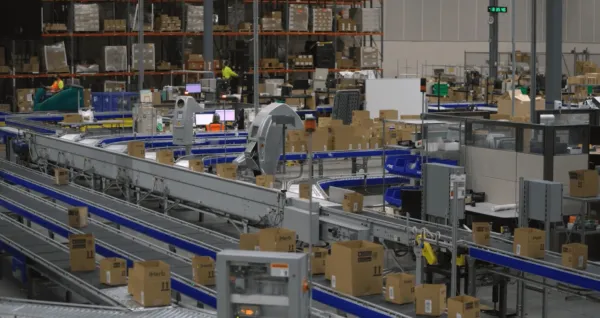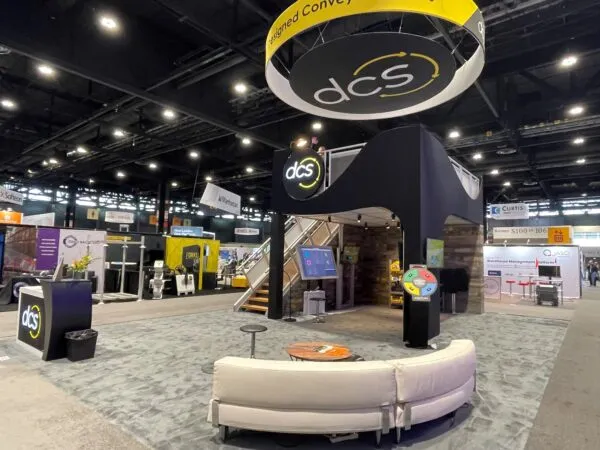Annually, nearly 2.2 million active service personnel across all branches of the U.S. military retire and transition to civilian life. At the same time, 54% of companies throughout the supply chain and material handling industries say that hiring and retaining qualified workers is one of their top challenges—particularly as the industry continues its exponential growth trajectory. Just how challenging? According to the U.S. Labor Department, there are 5.5 million more job openings in the field than there are available workers.
Now I don’t consider myself to be a mathematical genius, but I can clearly see that an opportunity exists for employers throughout supply chain and material handling to add a highly skilled and motivated workforce to their own ranks. One that’s already steeped in logistics, problem solving, leadership, and accuracy: veterans.
I know this personally. I’m a 20-year veteran of the U.S. Army who has also spent 15 years in the Army Reserve and am also an armed forces reserve officer. When I left active duty and transitioned to a career in the civilian world 15 years ago, I landed in supply chain and material handling—an industry I wasn’t even aware existed! Initially I worked for a major food manufacturer as an operations manager. I then shifted into project management, which led me to my current role at DCS.
Veterans like me are absolutely perfect for these types of positions (and many others) throughout the supply chain field. Afterall, the reason the U.S. has the greatest military in the world is its prowess in executing logistics. Our country can literally mobilize our entire collection of armed forces and land them anywhere in the world within 12 hours. And that’s only the half of it. Thanks to our country’s logistics acumen, our military can be fed, clothed, fueled, and supplied no matter where they are.
The criticality of logistics to the success of a mission is drilled into every serviceperson’s training from day one. Yet, those who are in the process of transitioning out of their military career and into civilian life often struggle to translate the skills and knowledge they developed during active duty into terms a prospective employer can understand. Likewise, companies can also have misconceptions about military veterans that I’d like to dispel in this post.
Translating Military Skills into a Supply Chain Career
In addition to having a firm grasp on the importance of logistics, military veterans gain skills in a broad range of leadership styles; in people management; in assessing a situation, making a plan, and executing it quickly; in backwards planning to determine how to meet an objective; in adjusting to changing circumstances on the fly; and in being accurate, precise, thorough, and accountable. Veterans are generally interested in and open to learning new things, and we’ve often seen or operated material handling equipment, worked in warehouses, loaded or unloaded supplies, taken inventory, and performed a host of other logistics tasks.
Where it can become tricky, however, is that the terms used to describe these activities are often military specific. That is, full of jargon that civilian hiring managers may not understand or be able to correlate to their job openings.
Although all branches of the military have transition offices that help active personnel on their retirement journey, it can also be helpful to work with a third-party “military headhunter.” These are independent recruiters who work with companies interested in hiring veterans and with veterans seeking jobs. Many of them offer career coaching and preparation assistance at no cost or obligation to the veteran.
One of the most valuable services I received from such a firm was advice on how to rewrite my resume so prospective employers could clearly see how my military experience would benefit them in a civilian position. There are several of these companies out there: Bradley-Morris, Cameron-Brooks, Lucas Group, and Orion Talent are just a few. Additionally, supply chain and material handling organizations and associations, such as MHI, offer support and information for both employers and veterans.
As for the types of roles that veterans are ideal for in this field, there are many. Operations management is one. So is project management. It’s a topic I recently chatted about with Tyler Kern, host of DCS’ podcast OTIF: On Time In Full, in the episode “Veterans Transitioning to Project Management and Material Handling Industry (MHI) Roles.”
For me, project management has been a great career. Once I picked up on the supply chain and material handling industry jargon and acronyms (the military isn’t the only organization that’s fluent in “alphabet soup”), I quickly realized just how much of my military skills and experience could be applied to this field.
Dispelling Misconceptions About Veterans’ Employability
In spite of the reasons I shared above, there remain companies and employers who are reluctant to hire veterans. I believe that this hesitation stems from misconceptions or stigmas that are misinformed.
For those who hesitate to hire veterans with no previous experience in this industry, I would encourage them to look for the soft skills—particularly in leadership—that military personnel bring to a civilian career. You can always teach someone the terminology, project management principles, how to fill out a spreadsheet or run a software program, and how to hold others accountable. But it takes a certain degree of leadership skill to convince someone to perform a task in the line of fire.
Speaking of leadership, another common misconception is that veterans always apply a very heavy-handed approach when leading others. That is, they only use a “my way or the highway” style. In actuality, the direct command is simply one of many leadership tools available to those serving in the armed forces. In fact, I’d estimate that 90% of the time a collaborative leadership approach is used in the military. Collaboration is likewise critically important in today’s supply chain and material handling jobs. It’s how I get my own job as a project manager done every day. I like to say that in my project management role I run nothing but my mouth as I work with others to move a project along its timeline.
Finally, there has been a tremendous amount of media coverage about post-traumatic stress disorder (PTSD) as the public becomes more educated about the importance of mental health and available treatments. That, however, has created a perception that all veterans have PTSD and are unsuitable for employment. This could not be further from the truth. While it is true that some veterans suffer from PTSD, the military has dedicated enormous resources to offering treatments and therapies that allow sufferers to live and work productively and successfully both while serving in uniform and beyond. Don’t let this unfounded concern keep your company from its next great new hire—who also happens to be a veteran.
Help Spread the Word
When I explain to my colleagues in the military reserves what I do for a living, they are really interested in the opportunities. They simply haven’t been aware that this field exists. Likewise, many employers overlook veterans and active military personnel who are approaching service retirement as a potential labor pool. It’s my hope to help raise awareness among both groups about the potential each has to offer the other, starting with this blog post and the podcast I mentioned earlier.
Want to help spread the word about the job opportunities for veterans in the supply chain and material handling industry? I encourage you to share both this post and/or the podcast among your personal and professional networks. And, if you have more questions about this topic, I’d be happy to answer them. Connect with me through DCS.
Author
DJ Hughes, Director of Project Management Office, dj@designedconveyor.com
